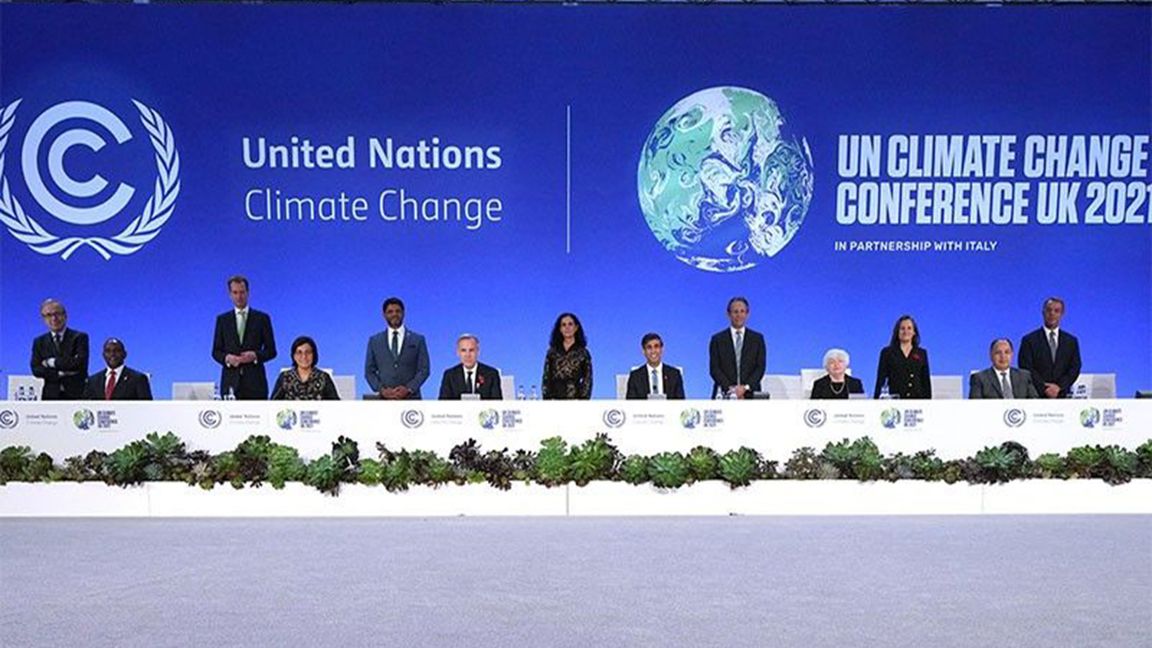Finally, global finance ministers have pooled their assets—now estimated at $130 trillion—to fund the “world’s transition to carbon neutrality.” But doubts have been raised because there were no categorical statements on the total departure from the use of fossil fuels as there were no regulations laid out on the use of the funds.
WORLD finance ministers who met in Glasgow, Scotland for the 26th UN climate change conference of parties (COP26) have formed the Glasgow Financial Alliance for Net Zero (GFANZ).
The alliance represents assets worth $130 trillion, which UN finance envoy Mark Carney and others said “could be mobilized to pay for the world’s transition to carbon neutrality.”
Ready
"The money is here if the world wants to use it," said UN climate finance envoy Mark Carney, who has overseen the creation of a vast alliance of banks and funds that say their portfolios are ready for net-zero investments.
In past summits, the rich (carbon) emitters have always complained of lack of money that they said has hampered their nations’ plans.
GFANZ and its institutions will work towards cutting emissions by 50 percent by 2030 and report on progress every year as well as submit enhanced funding plans every five years.
"We now have the essential plumbing in place to move climate change from the fringes to the forefront of finance so that every financial decision takes climate change into account," Carney said.
$3-4 trillion annually
Cost estimates vary but it is thought that it will take between $3-4 trillion annually — around 2 percent of global GDP — to reach net-zero by mid-century, the Agence France Presse reported.
Finance is a fundamental part of climate action, in theory freeing up developing countries' national budgets and helping them build green infrastructure.
"We're very engaged in climate action. But finance is a fundamental problem, and it will determine the delivery of our promises," said Indonesian finance minister Sri Mulyani Indrawati.
"We don't need $130 trillion, just $270 billion!" she said, referring to the estimated annual cost of her country decarbonizing by mid-century.
Glasgow funding
The Glasgow funding initiative also raised the hackles of environmental groups, who pointed out that it left the door open for the funds involved to continue investing in fossil fuels.
"More than $130 trillion and not a single rule to prevent even one dollar from being invested in the expansion of the fossil fuel sector," said Lucie Pinson, executive director of the Reclaim Finance initiative.
The alliance has no set limits on carbon "offsets" to reduce net emissions and does not impose targets on indirect emissions.
'Marathon'
Fossil fuel investment by large banks has risen significantly since the 2015 Paris Agreement was signed.
But finance is waking up to the need to diversify away from dirty energy or risk stranding major assets such as coal mines or gas pipelines that get mothballed before their lifespan expires.
"We're seeing a big change in private finance sector, who is realizing that climate risks are important for their portfolios," UN climate chief Patricia Espinosa said Wednesday.
Espinosa also hinted that the feted $100-billion-a-year figure — promised by rich nations more than a decade ago to help vulnerable nations prepare for climate impacts — would likely be met by 2022.
But even that would be a drop in the ocean of what is needed to decarbonize the global economy.
US Treasury Secretary Janet Yellen stressed the role private finance was likely to play.
"The private sector is ready to supply the financing to set us on a course to avoid the worst effects of climate change," she said.
But the proof will be in how quickly — and how much — these initiatives deliver to countries requesting assistance.
Lorena Gonzalez from the World Resources Institute said there had been "encouraging signs" for climate finance at COP26.
"It's crucial (that) these finances reach the countries in 2022 and not in five years or later," she said.
Simon Stiell, Grenada's minister for Climate Resilience, said that the funding potential of the Glasgow alliance to keep the 1.5C temperature goal in reach was akin to a "marathon."
"The sprint is adaptation, to adapt to 1.1C", the amount Earth has already warmed, he said.
Tags: #COP26, #Glasgow, #Scotland, #financeministers, #GFANZfund, #climatechange, #carbonneutrality
